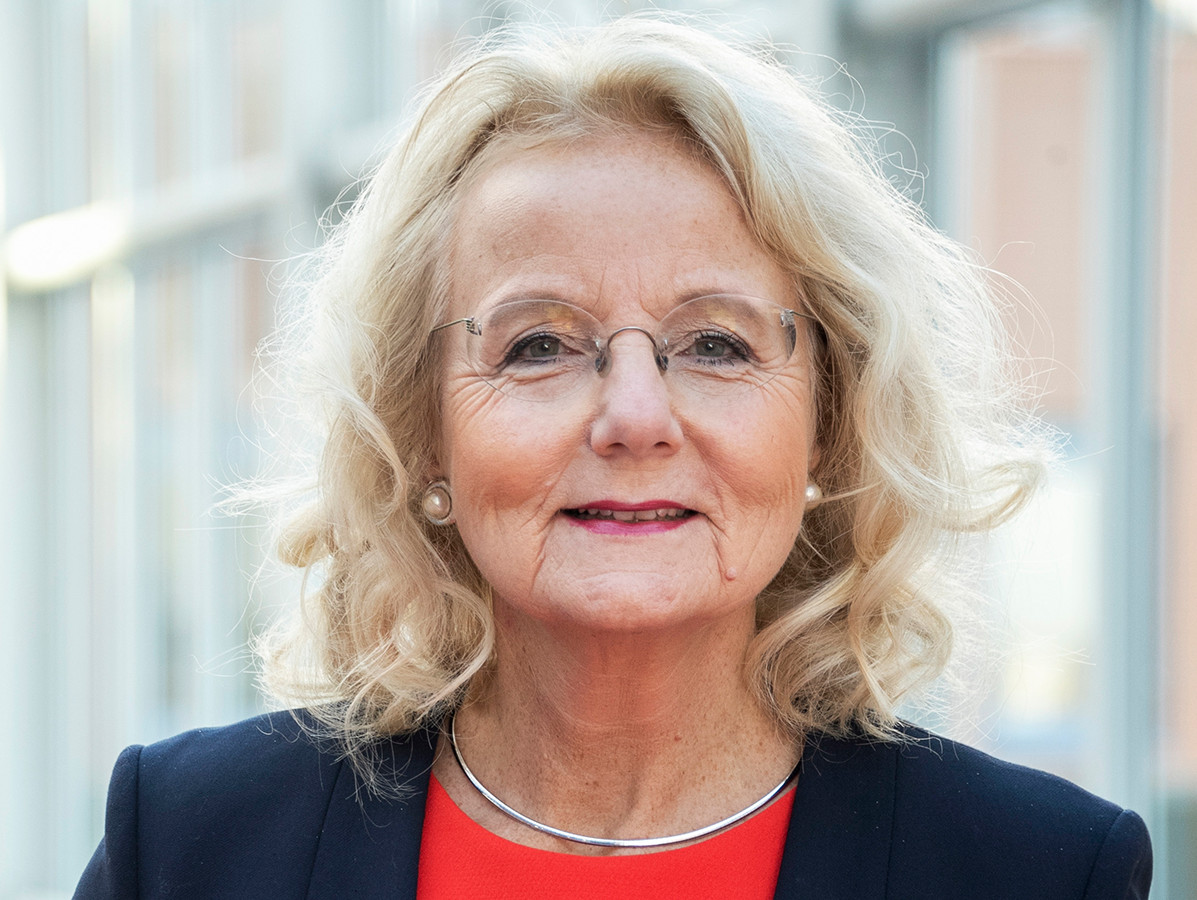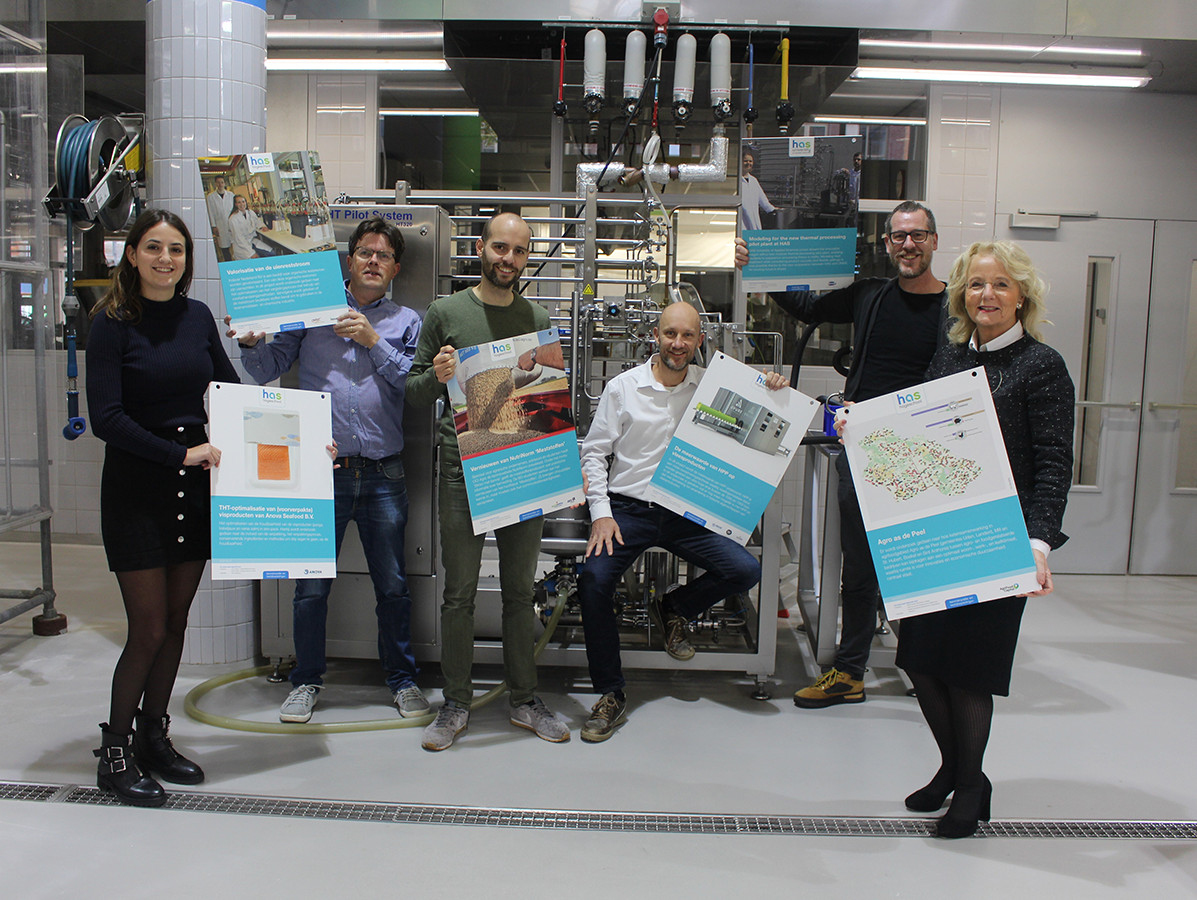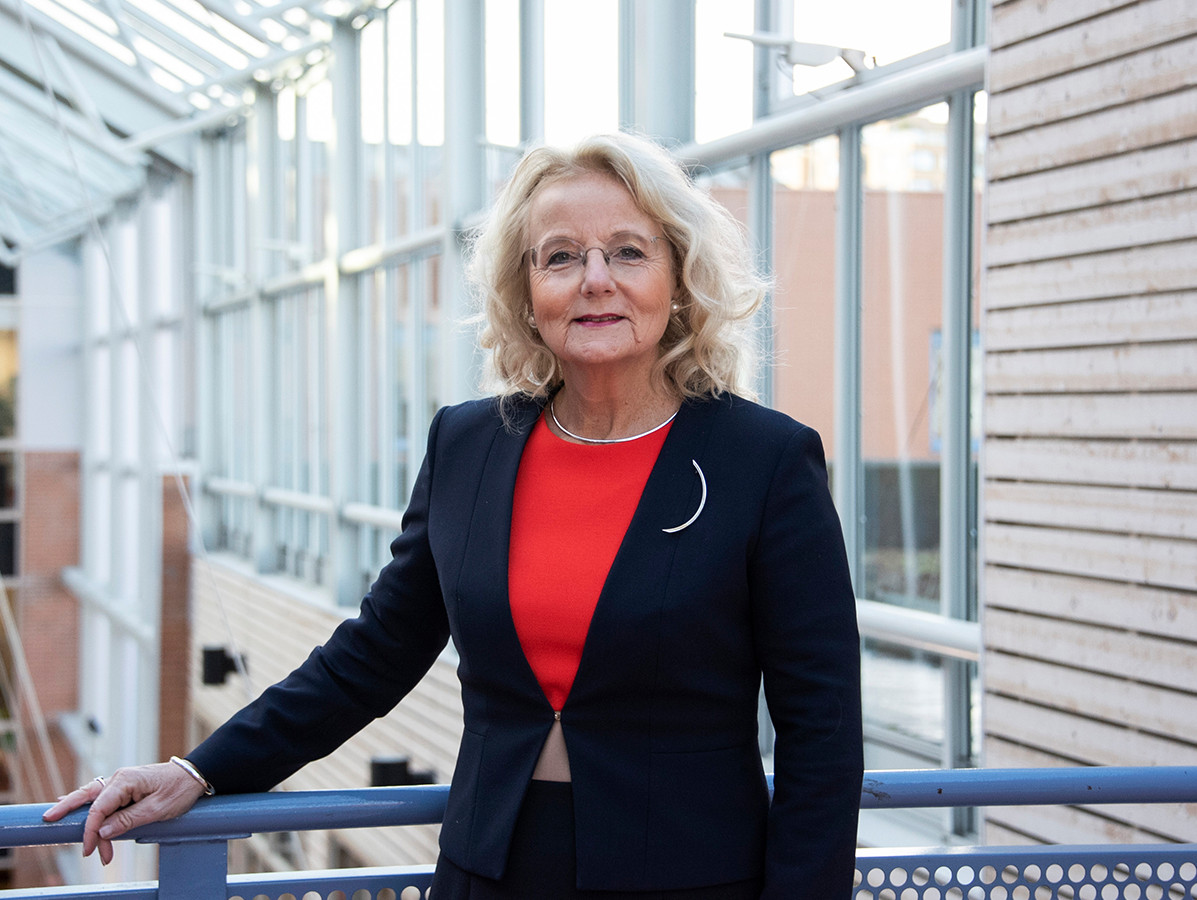
According to Elies Lemkes, food processing companies have a key position when it comes to making the chain more sustainable. This requires close cooperation with suppliers and customers, as well as the implementation of innovative technologies.
Packaging material made from cow manure and a high protein snack for the elderly: two examples of the more than 140 projects that were on show during the HAS Food Experience at the beginning of February. Recurring themes included the protein transition (meat substitutes, stimulation of fruit and vegetable consumption with new product concepts), combating food waste and adding value to residual flows. "This is where the sustainability professionals of the future are trained," says Elies Lemkes with pride and confidence. For two years now, she has been a lecturer on Sustainable Producing in the agrifood sector at the HAS University of Applied Sciences in Den Bosch. Together with a team of lecturer researchers and students and lecturers from the Environmental Sciences, Food Technology and International Food & Agribusiness programmes, she focuses specifically on combating food waste on the production side ('foodloss'); making food production processes more sustainable; closing cycles, and measuring sustainability. "Where the WUR mainly carries out fundamental research, our research is practice-based. Our ambition is to help parties throughout the chain to become more sustainable with concrete solutions".
"The theme has shifted from 'nice to have' to 'need to have'. I used to work for the agricultural sector, in which sustainability plays a natural role. Under the influence of social developments and national and international legislation and regulations, sustainability has become a 'spot-on' theme throughout the chain. In the boardrooms of food companies and retailers, you increasingly see an intrinsic motivation around the subject".
"Food processors have a key position, after all, they are the key link in the chain. They can exert influence by making their own sustainable choices in areas such as raw materials, processing techniques, transport and packaging materials. To do this, they need to enter into dialogue with their suppliers and customers. This is happening more and more. Sustainability begins at the basis. That's why some food processors, for example, facilitate farmers with a service programme to make them more sustainable, even in Asia. That way, you can offer them trade perspectives. The cost price of sustainable products can be higher. Are customers prepared to pay extra? In order for sustainability to permeate the chain, there must be good cooperation."

"Different technologies offer opportunities for this. We have a unique collaboration with Food Tech Brainport in Helmond, a centre of expertise for SMEs where technical innovations for a more sustainable food sector are given plenty of space. Our students work on practical questions here. Win-win for company and student, and it brings knowledge development further. We all benefit from that. I would therefore like to invite companies to submit questions and assignments to us. We have selected seven technologies that give a longer shelf life and use less water and energy. The products are also of better quality: tastier, healthier and they look better. We are currently testing, among other things, the Radio Magnetic Freezing method, in which products are frozen under the influence of radio waves in combination with a magnetic field. This uses 20% less energy than conventional freezing methods, creates smaller ice crystals that damage the cells of the product less, and there is less loss of moisture during thawing and/or processing - 'drip loss'. Ideal for soft fruit processing. At my lectureship students who worked with this method served mango that was frozen using this method; deliciously soft and creamy and pure nature without additives!
We also do research on High Pressure Processing. This technique has been used in the US for decades and is now strongly on the rise in Europe. Packaged foods are put under very high pressure which neutralizes listeria and salmonella up to 5 log reduction. The shelf life is three to five times longer than with traditional preservation techniques. This allows you to reduce preservatives and e-numbers. This method extends the shelf life of soups, sauces, dips, freshly squeezed juices and smoothies to 60 days, and that of packaged meats to 120 days. This brings peace of mind to the logistics chain, creates a more efficient production because you can produce ahead and reduces your loss - pleasant for retail customers. In addition, you increase your export area because chilled products can be transported not by plane but by truck or boat.
A third technique we are testing is Agitated Thin Film Drying. This is aimed at vacuum drying at lower temperatures, so that side streams such as water vapour and possible emissions can be captured and de-rated. Ideal for food processors making coffee, spices and dairy powder. With this, an energy reduction of tens of percentages can be realised. But because it may produce a different powder than spray drying, we need to investigate this even further."

"Testing the feasibility of introducing a new technology remains a challenge. Not only in a technological sense, but also in a social and, of course, economic sense. Measuring sustainability is therefore a line of research in the lectorate. It involves more than Life Cycle Analysis. True cost accounting is on the rise, but is still developing. Furthermore, replacement techniques naturally require investment. Robotisation, artificial intelligence and the Internet of Things will increasingly play a role in and alongside new process technologies. These investments must be able to pay off. At the end of the day it's all about what is bought and eaten. This also requires cooperation with the government that can stimulate developments: public-private cooperation. Another possible obstacle is cooperation in the exchange of data. Sustainability requires a transparent chain, and therefore the sharing of data. Many companies still have to get used to that. The desire is usually present, and so is the data, but there are many aspects to making concrete agreements".
"You need each other to bring a sustainable product to the market. If a sustainably grown product is not sustainably processed, packaged and transported, then, once it reaches the consumer, it is no longer sustainable. The exchange of data is therefore a precondition. If data also becomes accessible to consumers, they can base their product choice on a personal definition of sustainability and thus vary their diet: from fresh to ready-to-use, from animal friendly to low footprint, etcetera. After all, sustainability has many faces. A vegan diet seems sustainable, but if, for example, you eat a lot of avocados, you increase the burden on the environment due to the water used in production and the 'food miles'. Sustainability is not yet the main reason for consumers to buy a product. But that's going to change, I firmly believe."
Elies Lemkes-Straver (1957) has a long track record in the agri-food sector, high tech and design. From 2012 to 2018 she was managing director of ZLTO (the interest group for farmers and horticulturists in Zeeland, Noord-Brabant and Zuid-Gelderland) and its affiliated investment company NCB. Previously, she was director of Brainport Eindhoven, a collaboration between municipalities, companies and knowledge institutions in the region in the field of high-tech, design and the manufacturing industry. When she became a lecturer at the HAS University of Applied Sciences in 2018, Lemkes said: "I am looking forward to my new activities at the cutting edge of knowledge, innovation and entrepreneurship that I love so much".
Photos: © Karin Jonkers
Source: © Vakblad Voedingsindustrie 2020